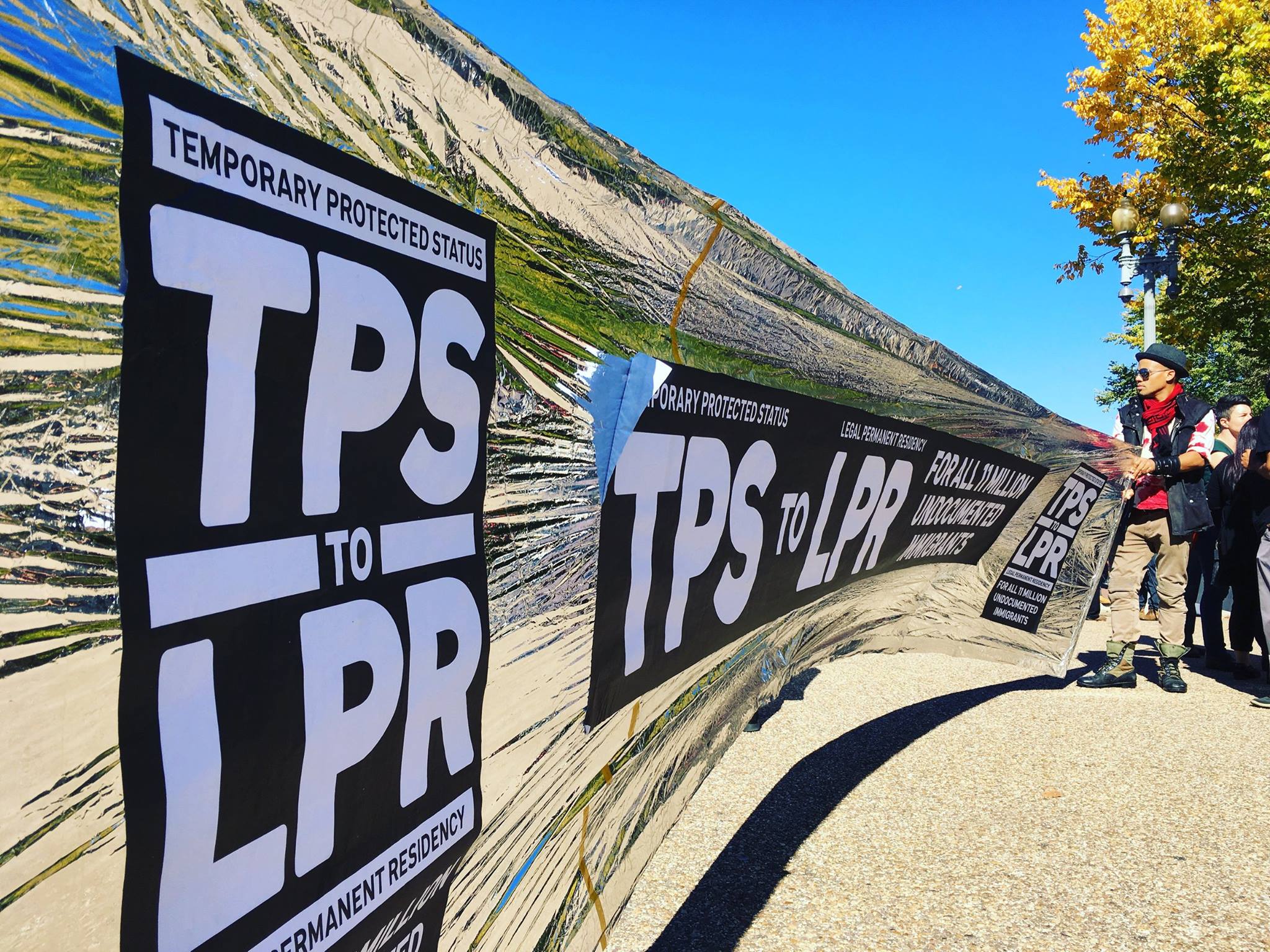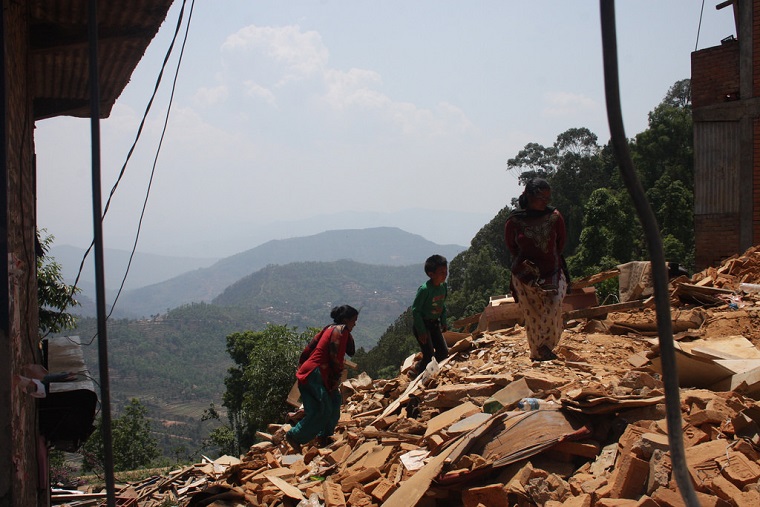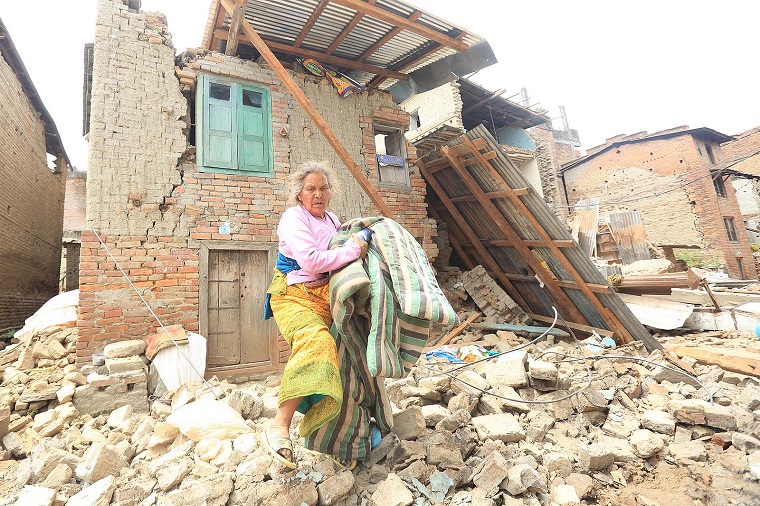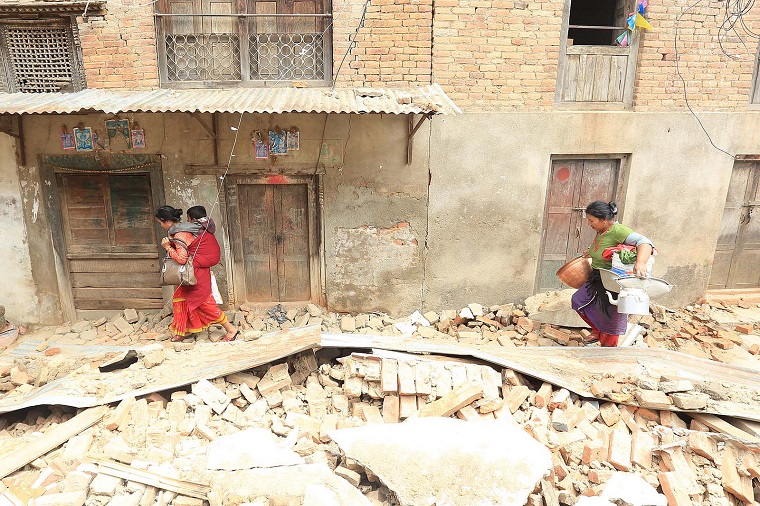
After a devastating earthquake in Nepal, TPS helped my family and friends move forward.
Take action to save Temporary Protected Status by contacting Congress today.
A little past midnight on April 25, 2015, I was woken up by loud banging on my bedroom door. It was my roommate. “Nepal just got struck by an earthquake,” he said shakily in Nepali. I grabbed my cell phone from my nightstand. A BBC breaking news notification confirmed what my roommate had just said. This was actually happening.
We both frantically tried calling home. First we used VOIP apps to try to connect. No luck. I used my phone service to try to reach my younger brother. I got through. His voice was distorted, but I heard him say that the earthquake was massive, lots of buildings were down, but my family was OK.
The telephone circuits in Nepal were overwhelmed by thousands maybe even millions of people from abroad who were trying to reach loved ones in Nepal. I would not be able to get my family on the phone again for a couple of weeks.
After my roommate confirmed that his family also was also OK, we spent the rest of the night in the darkness in our living room, on social media, reading rolling coverage of the earthquake. I felt like I had been punched in the gut. I just kept seeing the words “catastrophe,” “devastation,” “calamity,” “death” over and over again. I looked over to my roommate. His face was illuminated by the light from his laptop screen. “This is crazy” he murmured. “I can’t believe this is happening.”
As we thought about everyone back home, we also began to grapple with what it meant for us and our Nepali friends who were here in the United States. On top of worrying about their families, many would have to worry about what would happen to them in the U.S. Unlike my roommate and me, these were friends who did not have the luxury of a legal and stable immigration status here in the U.S.
We had friends who were undocumented. “What if their family members had been badly injured or, God forbid, had died?” I wondered. They would have no way of visiting them. Or if they decided to go back, they wouldn’t be able to return to the U.S. and would have to give up everything that they had worked for here.
We had other friends who were on F1 student visas. They depended on their parents in Nepal for financial support for their college education, since students with F1 visas are not allowed to work off campus. “How would parents afford to send money to their children here? How would our friends support themselves?” I wondered.
As the scale of the devastation became clearer, a petition for something called Temporary Protected Status (TPS) began circulating on social media.
I didn't know what TPS was at that time.
Temporary Protective Status is a designation given to a country by the U.S. Department of Homeland Security when an ongoing conflict, natural disaster, or other dangerous conditions prevent that country’s nationals from returning home safely. Once a country receives a TPS designation, nationals of that country residing in the U.S. receive a temporary, humanitarian form of relief from deportation.
I was one of the thousands of people who signed the petition, and in July of that year, the U.S. announced TPS designation for Nepal. Through that act, the U.S. government provided aid to thousands of Nepalis whose lives had been devastated by the earthquake.
Today, TPS protects approximately 330,000 people in the U.S. from a total of 10 countries who would otherwise be subjected to disease, violence, starvation, the aftermath of natural disasters, and other life-threatening conditions. The largest group of TPS recipients is from El Salvador (195,000 people), followed by Honduras (57,000 people) and Haiti (50,000 people).
Despite the life-saving nature of this program, the Trump administration has taken steps to end TPS for immigrants from Nepal and most of these countries. That means hundreds of thousands of people will lose their legal Temporary Protected Status. This would be one more in a series of cruel attacks on immigrants that would devastate communities across the U.S.
Since 2015, TPS has helped Nepalis in the U.S.—and Nepal—in more ways than I could have imagined. Deportation proceedings for about 3,000 Nepalis were halted, and 8,000 Nepalis who were on tourist visas could stay longer. While this might seem like a small number, after the earthquake, the Nepali government was struggling to coordinate relief efforts in the country. Almost 6,000 people had died, 11,000 had been injured, and over a hundred-thousand people had been internally displaced. Nepal’s only international airport had to be used exclusively for delivering desperately needed aid. The Nepali government would have simply not been able to reabsorb its nationals from abroad.
TPS has also had a positive residual impact on Nepal and its economy. TPS granted more Nepalis the ability to work in the U.S. And over 6,000 Nepali students who would not have been able to work off campus could now do so and support themselves.
Nepalis in the U.S. could work to help their families who were impacted by the earthquake. They were able to transfer money to rebuild houses and restore livelihoods. Remittance—the money that Nepalis abroad send back to Nepal—now accounts for over 30 percent of the Nepali economy. Rather than relying just on aid, residents spent remittance on local goods and services, which helped the economy toward recovery.
And after the emergency was over, TPS allowed many Nepalis to visit Nepal for the first time in years. My cousin, for instance, visited his daughter and wife, whom he hadn’t seen for more than two years. An undocumented friend saw his family for the first time in more than a decade and was also finally able to marry his high school sweetheart. None of these things would be possible without TPS.
Despite its positive impacts, the Trump administration terminated TPS for Nepal effective June 2019. And without any recourse for permanent legal immigration status, my friends who have benefitted from TPS—and now have homes and livelihoods here in the U.S.—are in danger once again of being deported.
Right now TPS holders, their families and allies are doing all they can to push back and demand their right to stay in the U.S., where they have made homes, careers, and lives for themselves. We should all stand with them in solidarity by taking action and contacting our members of Congress today to protect this vital program.
TPS comes out of a humanitarian impulse that represents the best in America and Americans. It is one of the few benefits that can provide a small semblance of security and sanctuary during turbulent and catastrophic circumstances. TPS has been invaluable for Nepalis and hundreds of thousands of immigrants. Ending this program would be a devastating blow to immigrants and communities across the U.S.
How you can help:
Take action today: Tell Congress: Protect TPS, DED, and DACA and create a roadmap to citizenship for all immigrants!
Learn more about TPS: Visit our website to read more about this vital program, hear stories from TPS holders and their families, and find more resources for action.


